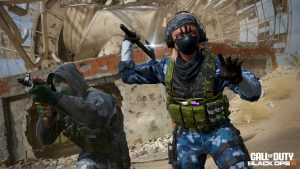It was recently revealed in an article published in The Guardian that a unique clinic in the United Kingdom has experienced a staggering influx of patients. It’s the National Centre for Gaming Disorders, an NHS-backed clinic that was opened in 2020 off the back of a network of gambling treatment clinics to support those suffering from addictions and ‘gaming disorders’.
In this article, it was highlighted that early estimations and projections of patient numbers have been shattered. In less than three years, 855 referrals have been made to the National Centre for Gaming Disorders – it was originally thought that no more than 50 patients a year would be seen at the clinic.
That’s an increase over expectations of more than 470%.
‘The Desperation of Families’
It was a two-part breakdown in The Guardian, with one chapter being written up by Professor Henrietta Bowden-Jones, the Director of the ‘NCGD’. In the other chapter, an article published by Rob Davies took a more gambling-focused approach, detailing crossovers between gaming and betting industries and highlighting how, in some ways, it’s the gambling aspects of gaming that can get young people hooked so fast.
It was revealed that a third of the patients referred to the NCGD were sent there because of an addiction to lootboxes, which remains an ongoing debate in the world of gaming.
It was also highlighted that, over the course of a one-year period, around 12% of the patients referred to the clinic were suffering from compulsive disorders tied to the popular battle royale game, Fortnite. Then, working our way down the list provided, 10% were connected to Minecraft, 8% to Call of Duty, and around 5% to Roblox.
Reportedly, more than half of the patients referred to the clinic for treatment for a gaming disorder are children. In the article penned by Bowden-Jones, damning and desperate statements were made:
I have met children who felt they would rather be dead than not game and said so to their parents. Doors, objects, possessions, things get broken in fits of rage. Sometimes people get hurt. Possibly the most surprising aspect has been the amount of involvement from the police to these homes after a domestic violence issue. The young age of the children makes it hard to hear these stories.
Bowden-Jones also explained that around sixty different games were mentioned during treatment sessions, which are geared around cognitive behavioural therapy. It was also made clear that the spectrum is vast – it ranges from young children all the way up to a much older generation of gamers. In Bowden-Jones’ words, a patient in her seventies is on the clinic’s books.
In a closing statement, Bowden-Jones urged people to not suffer in silence: ‘Gaming disorder is an illness and it can be treated successfully using cognitive behavioural therapy. If you know someone who is struggling please mention the National Centre for Gaming Disorders. We, the NHS, are here to help.’
For more Insider Gaming news, check out our coverage of the claim that Baldur’s Gate 3 has 17,000 possible endings.










